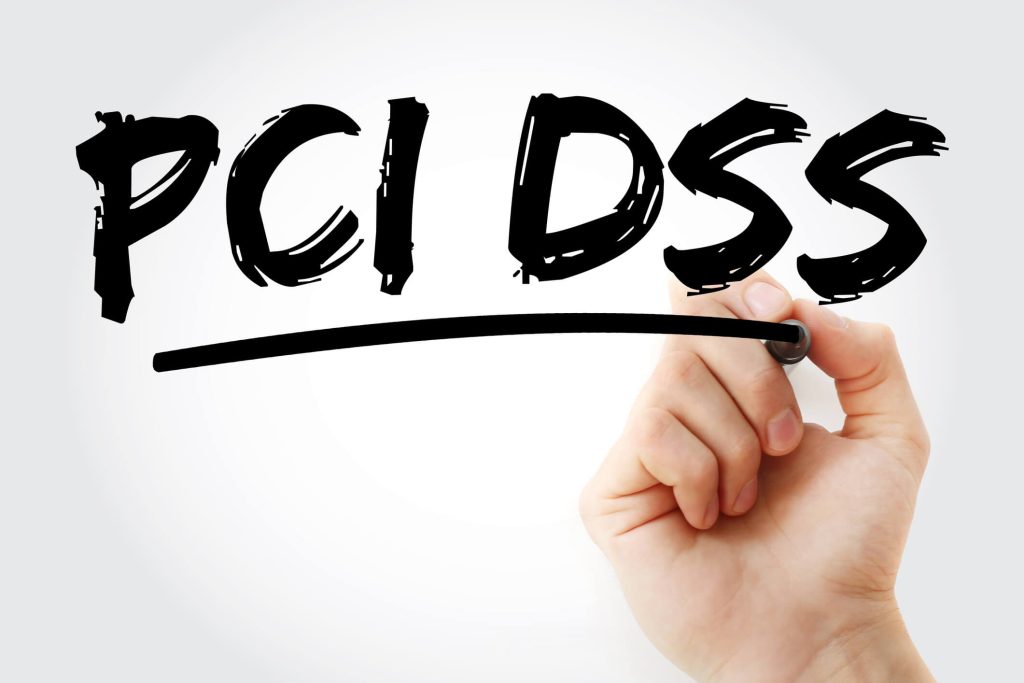In today’s digital age, credit card processing has become an essential part of running a successful dentistry business. However, the fees associated with credit card processing can eat into your profits if you’re not careful. That’s why it’s crucial to understand how to get the cheapest credit card processing rates for your dentistry business. In this detailed guide, we will explore the various factors that affect credit card processing rates, tips for negotiating lower rates, and strategies to reduce credit card processing costs. By the end of this article, you’ll be equipped with the knowledge to make informed decisions and save money on credit card processing fees.
Understanding Credit Card Processing Rates for Dentistry Businesses
Credit card processing rates can vary significantly depending on several factors. It’s important to understand the different components that make up these rates to effectively negotiate and find the cheapest options for your dentistry business.
Different Types of Credit Card Processing Fees
Credit card processing fees can be divided into several categories. The most common types include interchange fees, assessment fees, and markup fees. Interchange fees are set by the card networks and are non-negotiable. Assessment fees are charged by the card networks and are also non-negotiable. Markup fees, on the other hand, are set by the credit card processing provider and can be negotiated. Here’s a breakdown of the most common types of credit card processing fees, each serving a distinct role in the transaction process:
Factors Affecting Credit Card Processing Rates for Dentistry Businesses
Several factors can influence the credit card processing rates for dentistry businesses. These factors include the type of dental practice, average transaction size, monthly processing volume, and the level of risk associated with the business. Understanding these factors can help you negotiate better rates and find the cheapest options for your dentistry business.
Tips for Negotiating Lower Credit Card Processing Rates
Negotiating lower credit card processing rates can be a daunting task, but with the right approach, it is possible. Here are some tips to help you negotiate better rates:
- Research and compare: Before entering into negotiations, research and compare rates from different credit card processing providers. This will give you a benchmark to work with and help you identify the best options for your dentistry business.
- Leverage your business’s strengths: Highlight the strengths of your dentistry business, such as a high volume of transactions or a low chargeback rate, to negotiate better rates. Providers are more likely to offer competitive rates to businesses that pose less risk.
- Bundle services: Consider bundling additional services, such as payment gateways or POS systems, with your credit card processing. Providers may be more willing to offer discounted rates when you choose multiple services from them.
- Negotiate contract terms: Negotiate the terms of your contract, including the length and cancellation fees. Providers may be more flexible with their rates if you commit to a longer contract or agree to higher cancellation fees.
- Seek competitive bids: Don’t be afraid to seek competitive bids from multiple providers. This will create a sense of competition and give you more leverage in negotiations.
- Review your statements: Regularly review your credit card processing statements to identify any hidden fees or unnecessary charges. If you notice any discrepancies, address them with your provider and negotiate for their removal.
- Consider interchange-plus pricing: Interchange-plus pricing is a transparent pricing model that separates interchange fees from the provider’s markup. This can help you understand the true cost of credit card processing and negotiate better rates.
- Build a relationship: Establishing a good relationship with your credit card processing provider can go a long way in negotiating lower rates. Communicate your needs and goals, and work together to find mutually beneficial solutions.
- Monitor the market: Stay informed about the latest trends and developments in the credit card processing industry. This will help you understand market rates and negotiate from a position of knowledge.
- Be prepared to switch providers: If your current provider is unwilling to offer competitive rates, be prepared to switch to a different provider. Sometimes, the threat of losing a customer can prompt providers to offer better rates.
Choosing the Right Credit Card Processing Provider for Your Dentistry Business
Choosing the right credit card processing provider is crucial to getting the cheapest rates for your dentistry business. Consider the following factors when selecting a provider:
- Reputation and reliability: Look for providers with a solid reputation and a track record of reliability. Read reviews and testimonials from other dentistry businesses to gauge their satisfaction levels.
- Transparent pricing: Choose a provider that offers transparent pricing with no hidden fees. Avoid providers that use complex pricing structures that make it difficult to understand the true cost of credit card processing.
- Customer support: Ensure that the provider offers excellent customer support. You may encounter issues or have questions, and it’s important to have a responsive and knowledgeable support team to assist you.
- Integration capabilities: If you use specific software or systems in your dentistry business, ensure that the credit card processing provider can integrate seamlessly with them. This will streamline your operations and improve efficiency.
- Security measures: Credit card transactions involve sensitive customer information, so it’s crucial to choose a provider that prioritizes security. Look for providers that offer encryption, tokenization, and other security measures to protect your customers’ data.
Comparing Credit Card Processing Rates and Fees from Different Providers
To find the cheapest credit card processing rates for your dentistry business, it’s essential to compare rates and fees from different providers. Here are some steps to help you make an informed comparison:
- Request quotes: Reach out to multiple credit card processing providers and request quotes based on your specific business needs. Be sure to provide accurate information to get the most accurate quotes.
- Analyze the rates: Carefully analyze the rates provided by each provider. Look for any hidden fees or additional charges that may not be immediately apparent.
- Consider the overall cost: Don’t just focus on the rates alone. Consider the overall cost of credit card processing, including any additional fees, such as monthly minimums or statement fees.
- Evaluate the contract terms: Review the contract terms offered by each provider. Pay attention to the length of the contract, cancellation fees, and any other terms that may impact your ability to switch providers in the future.
- Read customer reviews: Research customer reviews and testimonials to get insights into the experiences of other dentistry businesses with each provider. This can help you gauge the level of customer satisfaction and reliability.
Strategies to Reduce Credit Card Processing Costs for Dentistry Businesses
Reducing credit card processing costs is a priority for dentistry businesses. Here are some strategies to help you achieve this goal:
- Implement EMV technology: EMV technology, also known as chip card technology, provides an added layer of security and can help reduce the risk of fraud. By accepting chip cards, you may qualify for lower interchange rates.
- Encourage cash or check payments: Consider offering incentives to patients who pay with cash or check instead of credit cards. This can help reduce your credit card processing costs.
- Set minimum transaction amounts: Establish a minimum transaction amount for credit card payments. This can help offset the fixed costs associated with processing small transactions.
- Educate your staff: Train your staff on best practices for credit card processing, such as avoiding keying in transactions manually and ensuring that all necessary information is captured accurately. This can help reduce the risk of chargebacks and potential fees.
- Optimize your payment processes: Streamline your payment processes to minimize errors and reduce the risk of chargebacks. Use technology, such as integrated payment solutions, to automate and simplify the payment process.
- Monitor and dispute chargebacks: Regularly monitor your chargeback activity and dispute any invalid or fraudulent chargebacks. This can help reduce the financial impact of chargebacks on your dentistry business.
- Review your pricing regularly: Don’t assume that the rates you negotiated initially will remain the best option for your dentistry business in the long term. Regularly review your pricing and consider renegotiating if you find better options.
Common Mistakes to Avoid When Seeking the Cheapest Credit Card Processing Rates
When seeking the cheapest credit card processing rates for your dentistry business, it’s important to avoid common mistakes that can cost you money. Here are some mistakes to avoid:
- Not reading the fine print: Always read the contract and terms of service thoroughly before signing up with a credit card processing provider. Pay attention to any hidden fees or unfavorable terms that may impact your costs.
- Choosing the cheapest option without considering other factors: While cost is important, it shouldn’t be the sole determining factor when choosing a credit card processing provider. Consider other factors, such as reliability, customer support, and security measures.
- Ignoring the impact of technology: Technology plays a significant role in credit card processing. Ignoring advancements in payment technology can result in missed opportunities for cost savings and improved efficiency.
- Failing to negotiate: Many dentistry businesses fail to negotiate credit card processing rates, assuming that the rates offered are non-negotiable. Always try to negotiate better rates and terms to get the best deal for your business.
- Not reviewing statements regularly: Failing to review your credit card processing statements regularly can result in missed discrepancies or unnecessary fees. Make it a habit to review your statements and address any issues promptly.
Frequently Asked Questions
Q.1: What are the average credit card processing rates for dentistry businesses?
The average credit card processing rates for dentistry businesses can vary depending on several factors, including the type of dental practice, average transaction size, and monthly processing volume. On average, dentistry businesses can expect to pay between 1.5% to 3% of each transaction in processing fees.
Q.2: Can I negotiate credit card processing rates with my current provider?
Yes, you can negotiate credit card processing rates with your current provider. It’s important to research and compare rates from other providers to have a benchmark for negotiations. Highlight your business’s strengths and consider bundling services to increase your negotiating power.
Q.3: Are there any hidden fees associated with credit card processing for dentistry businesses?
Yes, there can be hidden fees associated with credit card processing for dentistry businesses. It’s important to carefully review the contract and terms of service to identify any hidden fees or additional charges that may not be immediately apparent.
Q.4: How can I ensure the security of credit card transactions in my dental practice?
To ensure the security of credit card transactions in your dental practice, choose a credit card processing provider that offers encryption, tokenization, and other security measures. Train your staff on best practices for credit card processing and regularly monitor and dispute any fraudulent chargebacks.
Q.5: What are the alternatives to traditional credit card processing for dentistry businesses?
There are several alternatives to traditional credit card processing for dentistry businesses. These include mobile payment solutions, online payment gateways, and point-of-sale (POS) systems. Explore these alternatives to find the option that best suits your dentistry business’s needs and budget.
Conclusion
Getting the cheapest credit card processing rates for your dentistry business requires a combination of research, negotiation, and careful consideration of various factors. By understanding the different types of credit card processing fees, factors that affect rates, and tips for negotiation, you can make informed decisions and save money on credit card processing costs. Remember to choose a reputable provider, compare rates and fees, and implement strategies to reduce costs. With the right approach, you can achieve the cheapest credit card processing rates for your dentistry business and maximize your profits.


